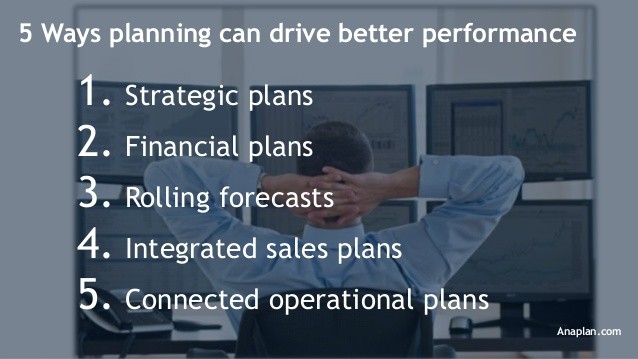How CFOs Can Use Scenario Planning as a Strategic Tool in an Uncertain Economy Deloitte CFO
Post on: 16 Март, 2015 No Comment

How CFOs Can Use Scenario Planning as a Strategic Tool in an Uncertain Economy
The economic uncertainty clouding the business climate highlights the importance for businesses to incorporate scenario-based planning into their processes. For CFOs, especially those who are embracing a greater strategist role in their organizations, using scenario-based planning for a wide variety of events can enhance a company’s competitive position, according to Frank Friedman, CFO, Managing Partner of Finance and Administration of Deloitte LLP. In this conversation, Mr. Friedman discusses how he employs scenario-based planning, in conjunction with econometrics, to foster a continual assessment of strategic actions to be taken, making a business more nimble and able to adapt to an ever-changing global environment.
Q: How do you use scenario-based planning in your role as CFO?
Frank Friedman, CFO, Managing Partner of Finance and Administration of Deloitte LLP
Frank Friedman: In the broadest sense, I use scenario planning to be forward-looking and to stay ahead of potential events rather than react after they occur. In conjunction with scenario planning, econometric models, which are developed by our finance team in collaboration with our economists, help me to frame the strategic thought process around what might transpire under a variety of circumstances—in regulatory and legislative arenas as well as the economy. The econometric models provide a range of financial data, which is critical to me in my role as CFO, and the models make the scenario planning more powerful.
Our focus today, as it is for many businesses, is twofold: what’s going to happen in Europe and the impact on the U.S. economy, and what’s going to happen on the regulatory and legislative landscape? Developments in these areas can have significant impacts on our business, so we continue to monitor them and plan our strategic response under various scenarios. Economic developments are watched very closely as the economy tends to change more quickly than the regulatory and legislative fronts.
Because our business is very closely correlated to GDP and, to a lesser extent, business investment in technology, we track and constantly monitor various indicators—such as unemployment levels, the S&P 500, the Bloomberg Credit Report, housing starts and resales, U.S. treasuries and corporate profits, among others—to analyze what could impact our organization and its growth. We review these and other indicators with our economists weekly, asking ‘What has history shown us and is history an indicator of the future?’ The econometric models, which use regression analysis, help address these two questions and frame our views. While we take these models into consideration in developing our scenario plans, we still need to layer in our own thinking and analyses.
Q: What are some of the most important elements of successful scenario-based planning?
Frank Friedman: First, scenario planning is only as effective as the actions you take. Our finance team works closely with our economists and our strategy group to develop strategic responses to the scenarios we model. As a result, we are prepared to take action when we see trigger points that were built into our models. Through this tight collaboration we’ve developed detailed playbooks that go much deeper than high-level response plans. I’ve found that these playbooks can help frame more thought around the issue or event being considered. The more detailed and granular the scenario plans are, the better the thinking you have around the consequences and the less likely you are to omit key aspects of what might happen in a given event. That doesn’t mean you’ll get it all right. No doubt, you’ll put steps in the playbook you’ll never take, and you’ll probably omit things that you will end up doing. But in a period of crisis, having something like that to lean on is a tremendous advantage. You’re not taken by surprise if ever there is a crisis. Being able to see those inflection points earlier and having detailed plans in place makes us a more proactive organization, and that helps our bottom line.
Q: What are some examples of how you’ve employed scenario-based planning?
Frank Friedman: At Deloitte, we’ve used scenario planning in a range of areas, from capital planning to strategic investments to projecting our talent needs. As I mentioned previously, we use scenario planning to try to get ahead of an event. For example, our economists saw the potential for an economic downturn in the fall of 2006. In response, we started developing strategies in the event a downturn became a reality. Those strategies included reducing our cost structure but, equally important, maintaining a strong position in terms of liquidity to make strategic investments. As a result, Deloitte made the biggest acquisition in its history at the beginning of 2009 and was able to deliver strong financial results in the midst of a recession. Since then, we’ve employed scenario planning to help make many other strategic investments in support of our long-term growth plans.
In another example, over a year ago our scenario planning analysis of the economy prompted us to adjust our hiring strategy for our organization’s infrastructure. Our models indicated there would be some major shifts in the economy, and scenario planning allowed us to proactively adjust our recruiting.
That’s what scenario planning is all about: having an understanding of what might occur so you’re not surprised by it and adjusting your business strategy to get ahead of certain events before they impact your business.
Q: Boards are increasingly turning to CFOs for assurance that they’re planning for Black Swan events. Is scenario-based planning a part of your discussions with the board of directors, and how do you communicate to the board how you’re planning for Black Swans?
Frank Friedman: Identifying events that aren’t likely, but would be very impactful to our business, is certainly a part of our scenario planning and discussions with the board. An unexpected regulatory event, for example, could fall into this category. In our discussions of such events, we explain the various potential outcomes we model, the likely impacts to the business and the playbooks we’ve developed based on those various scenarios.

Q: What would you say to those CFOs who aren’t employing scenario planning?
Frank Friedman: I think they are missing a critical opportunity to be forward-looking and fulfill their strategic role. Scenario planning allows you to think more strategically, consider the actions you would take under varying circumstances and the consequences of those actions, which is critical in an uncertain business environment. The power of scenario planning is not that the scenarios will turn out exactly as you’ve anticipated them; rather, performing the exercise helps you determine what steps you might take so you can develop playbooks around each scenario. You won’t necessarily implement the playbooks as you laid them out, but they give you a toolkit to work off as a baseline. No situation will ever play out exactly like a scenario plan will, but planning and preparation is 90% of the battle.
Q: For CFOs who haven’t done scenario-based planning, what would be your advice on how to start?
Frank Friedman: Finance can certainly lead the scenario planning process by itself, but alone the finance group will not be successful. This effort needs to connect the broader organization, including the strategy group, business units and human resource organization. The logical place to begin is to define the critical factors for maintaining the health of the business. You can start by asking fundamental questions such as: What happens if the economy goes into recession, and what happens in an expansion? If sales decline because of the conditions in Europe, do you know what actions you will take? How much capital will you need over the next 10 years, and how will you obtain it? What’s going to be the use of that capital? What happens if you can’t obtain bank financing? What would that mean for your business in both the short and longer term? What actions should you take around headcount management or support service levels in the event of a downturn? At its essence, scenario planning is no different than having a contingency plan in the event your business gets hit by a tornado, except that it provides playbooks for multiple contingencies. It’s all about rigorously thinking through the possible outcomes of events, how they could impact your business and what actions you would take given those possible outcomes. What do you do in certain situations? That’s what it comes down to.
I think every firm should identify the worst-case scenarios and plan for them. We run up to four or five scenarios. At a minimum, I would suggest defining the two or three scenarios for which you want to be prepared.
The areas that should be the focus of scenario planning will vary by company, industry, whether a company has multinational operations, its supply chain design and other factors. Of course, there will always be overarching events to consider, but it’s very important to bring the scenario planning to the core of the business and the potential issues the business can face.
September 12, 2012, 12:01am














